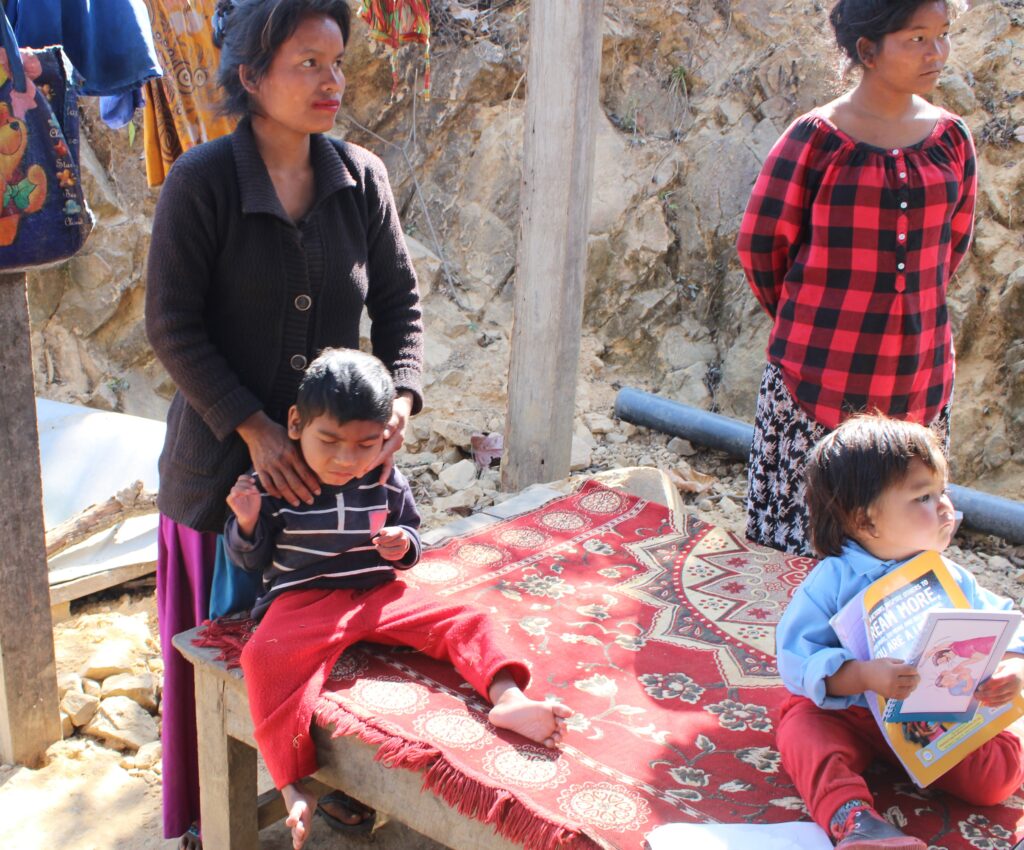Fostering inclusivity at home
4 June 2024
Over the last three months, we screened over 14,000 children for deafblindness across our eight countries. We also supported almost 700 children to access education, both in school and through home-based programmes.
Identifying children with deafblindness early is key for giving them the best start in life. Through partnerships with ministries of health, hospitals, and community health volunteers, we’re establishing screening services and training professionals to provide sensory therapy. We also provide children with assistive devices and work with parents and caregivers to gain the skills to nurture their child’s development at home.
Promod’s inspiring journey
In the rural landscapes of Chitwan, Nepal, resides a remarkable eight-year-old boy named Promod.
Promod has multiple complex disabilities which impact his physical development and mobility. As he grew, these challenges worsened and hindered his access to education. Additionally, his limited communication skills made it difficult for his parents to understand his needs.

Fortunately, Promod’s story took a turn for the better when Sense International and our partner organisation, National Federation of Deaf Nepal, became aware of his situation. We swiftly put in place a home-based support programme including developing communication techniques, therapy and physiotherapy sessions to enhance his mobility and motor control.
The results of Promod’s journey so far are nothing short of inspiring.
With unwavering dedication from both his parents, alongside consistent physiotherapy sessions, Promod has made significant improvements. His newfound ability to control his head and neck, coupled with improved posture and responsiveness, stands testament to his determination and the remarkable progress he has achieved.
“I hope that my son will go to school one day.”
Promod’s mother
Addressing the distinct needs of children with complex disabilities can be challenging. However, by recognising their strengths and actively tackling their challenges, we can witness tangible transformations over time.
This calls for a rounded approach that not only encompasses physical therapy but also educational and emotional support for the child and their family. As we celebrate Promod’s achievements, let’s commit to creating inclusive spaces where every child, regardless of their abilities, can thrive and fulfill their potential.
